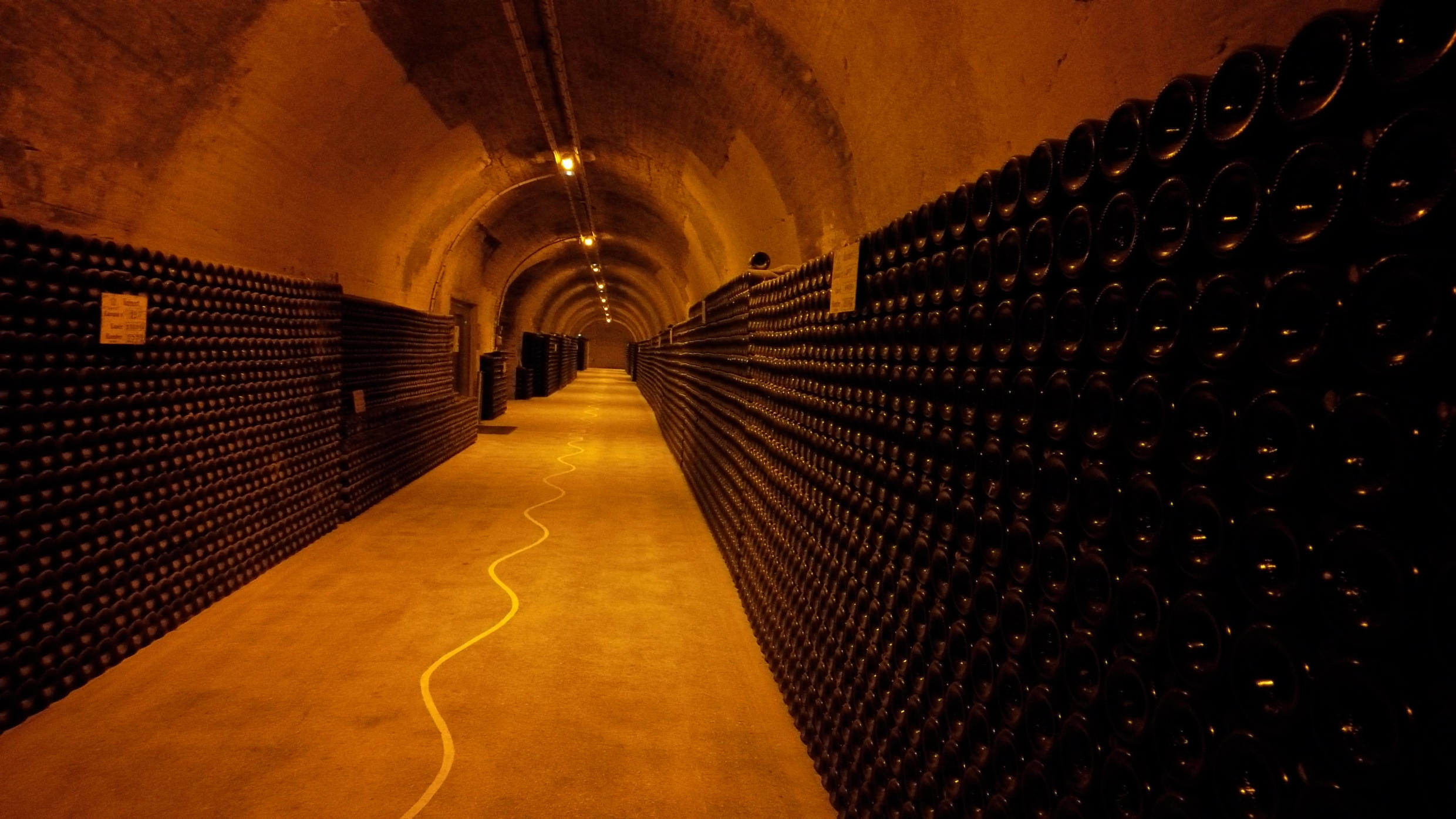In the cellars of Maison Ruinart, the oldest champagne producer in France
Maison Ruinart, based in the eastern French town of Reims, claims to be the oldest champagne house in the world. Shut to the public due to Covid-19 restrictions, the establishment opened its doors to RFI for an exclusive visit to its underground cellars.
Issued on:

Situated in the lush Champagne-Ardennes region, champagne houses are a group of century-old manors, and lie at the heart of France's champagne manufacturing.
French 'Art de Vivre'
In a tasteful salon, Ruinart's hospitality manager Olivier Livoire explains why champagne is inextricably associated with high living.
Nicolas Ruinart, a cloth merchant who learnt the secrets of making champagne from his uncle, created the first champagne house in 1729 in the French town of Epernay.

"Champagne was born in the 18th century, during the Age of Enlightenment, at the same time as the French art de vivre", says Livoire.
According to Livoire, this was when luxurious French living started becoming synonymous with high society around the world.

Chalk mines to champagne cellars
Later in the 18th century, Nicolas Ruinart's son Claude, looking to expand the business, discovered abandoned chalk quarries in the town of Reims.
"These quarries had a high level of humidity, as well as a constantly cool temperature and very little light. These are perfect conditions for wine to mature." says Livoire.
Claude Ruinart decided to convert these chalk quarries to champagne cellars

A flight of stairs leads to underground caverns forty metres below ground level.
Hundreds of thousands of champagne bottles are neatly stacked as far as the eye can see.

Re-inventing champagne tourism
The magnificient champagne manors with their cavernous wine cellars were declared a UNESCO world heritage site in 2015.
In normal circumstances, thousands of foreign 'champagne tourists' take day trips from Paris to visit Champagne-Ardennes, the world's unique champagne-making region.
But that changed since the Covid-19 outbreak last summer.
However, Reims mayor Arnaud Robinet told RFI that only the origin of the visitors have changed

"Our American, Japanese, Brazilian and Australian friends are not coming anymore. Tourism here has become European. We now have Belgian, English and also French visitors who are coming in more and more."
Covid-19 has thus caused champagne tourism in France to be 're-invented' - for the French.
(Thanks to Vanessa Fray for helping in the video shoot of this report)
Daily newsletterReceive essential international news every morning
Subscribe